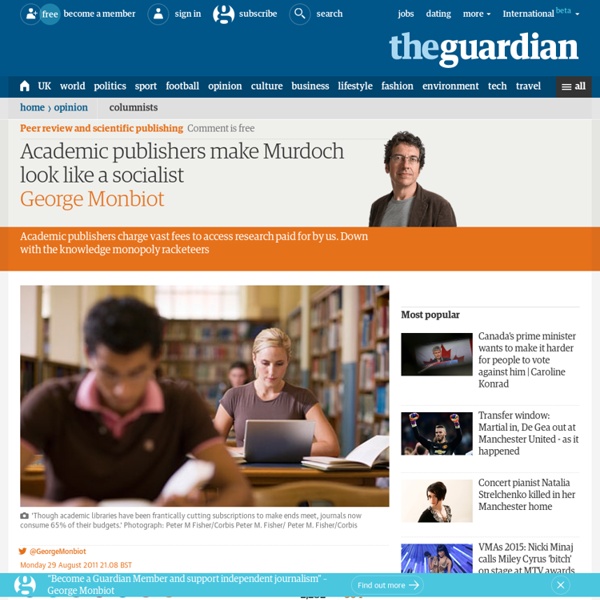The Official PLoS Blog
The three award recipients for the Accelerating Science Award Program (ASAP) were announced today in Washington, DC at the Open Access Week kickoff event hosted by the Scholarly Publishing and Academic Resources Coalition (SPARC) and the World Bank. ASAP recognizes the use of scientific research, published through Open Access, that has led to innovations benefiting society. Major sponsors include the Wellcome Trust, PLOS and Google. From left: Carlos Rossel of The World Bank, Robert Kiley of Wellcome Trust, Daniel Mietchen, Alex Kozak of Google, Nitika Pant Pai, Elizabeth Marincola of PLOS, Matt Todd, Heather Joseph of SPARC (click photo to view) The award recipients, along with the challenges they address and their innovative approaches, include: Global Collaboration to Fight Malaria (Matthew Todd, PhD): At least one child dies of malaria every minute of every day, mainly in Africa and Asia.
Happy 2012 Open Access Movement! December 31, 2011 Dramatic Growth of Open Access.
Highlights There are over 7,000 peer-reviewed fully open access journals as listed in the DOAJ, still growing by 4 titles per day and over 6,000 of these are in English, as listed by Open J-Gate. Electronic Journals Library keeps track of more than 32,000 free journals. Details and commentary As eloquently explained by Paul Stacey, 2011 was the year of open, or as Katarina Lovrecic suggests, everything OA seems to be coming up roses. Caroline Sutton and Peter Suber reported on growth in scholarly society open access publishers in the December 2011 SPARC Open Access Newsletter. Some highlights of 2011: this was the year to let the competition begin! Following are a few figures for the year. Just added to the dataverse: a first attempt at comparing % of free fulltext indexed in PubMed by research funder. Based on this method, it appears that Wellcome Trust is having the greatest success at compliance with its open access policy, having the highest percentage (62%) at the 3-year mark.
פותחים צוהר במגדל השן - ברשת
אין דבר שאי אפשר ללמוד היום בשתי לחיצות עכבר והקלדה של כמה מקשים - זו לפחות התפישה הרווחת בקרב הגולשים. אלא שהמציאות שונה בתכלית. נכון שאם תקלידו ביטוי מסוים תמיד תגיעו לדף הוויקיפדיה הרלוונטי, אבל עמי סלנט, המידען הראשי של מכון מופ"ת, מסביר כי גוגל "היא פתרון טוב כשמחפשים ידע עממי, אבל בסיס הידע האמיתי לא נמצא בגוגל או במנועים אחרים, אלא במסדי נתונים סגורים". אם תרצו להגיע לידע ברמה אקדמית בדרך כלל תמצאו את עצמכם מול יד פשוטה המבקשת הרבה מאוד כסף. זה בדיוק מה שקרה ללארי, אב אמריקאי, שזמן קצר לאחר לידת בתו השנייה, התגלו אצלה תסמיני צהבת. אבל לארי הוא בחור שבורך בהרבה מזל. פרופסור ניבה אלקין קורן, דיקנית הפקולטה למשפטים באוניברסיטת חיפה, ודלית קן-דרור, דוקטורנטית בפקולטה, מסבירות כי מי ששולט כיום בעולם הפרסומים האקדמיים הם כמה "קונגלומרטים של מו"לים", כפי שמגדירה זו פרופ' אלקין קורן, כמו Sage או אוקספורד יוניברסיטי פרס. אלקין קורן מסבירה כי "המצב הוא די פשוט. "זאת מפני שאותם מו"לים משתמשים בזכויות יוצרים כאמצעי למטרה שאינה קידום הידע", טען לסיג בהרצאה. רשיון בהתאמה אישית



